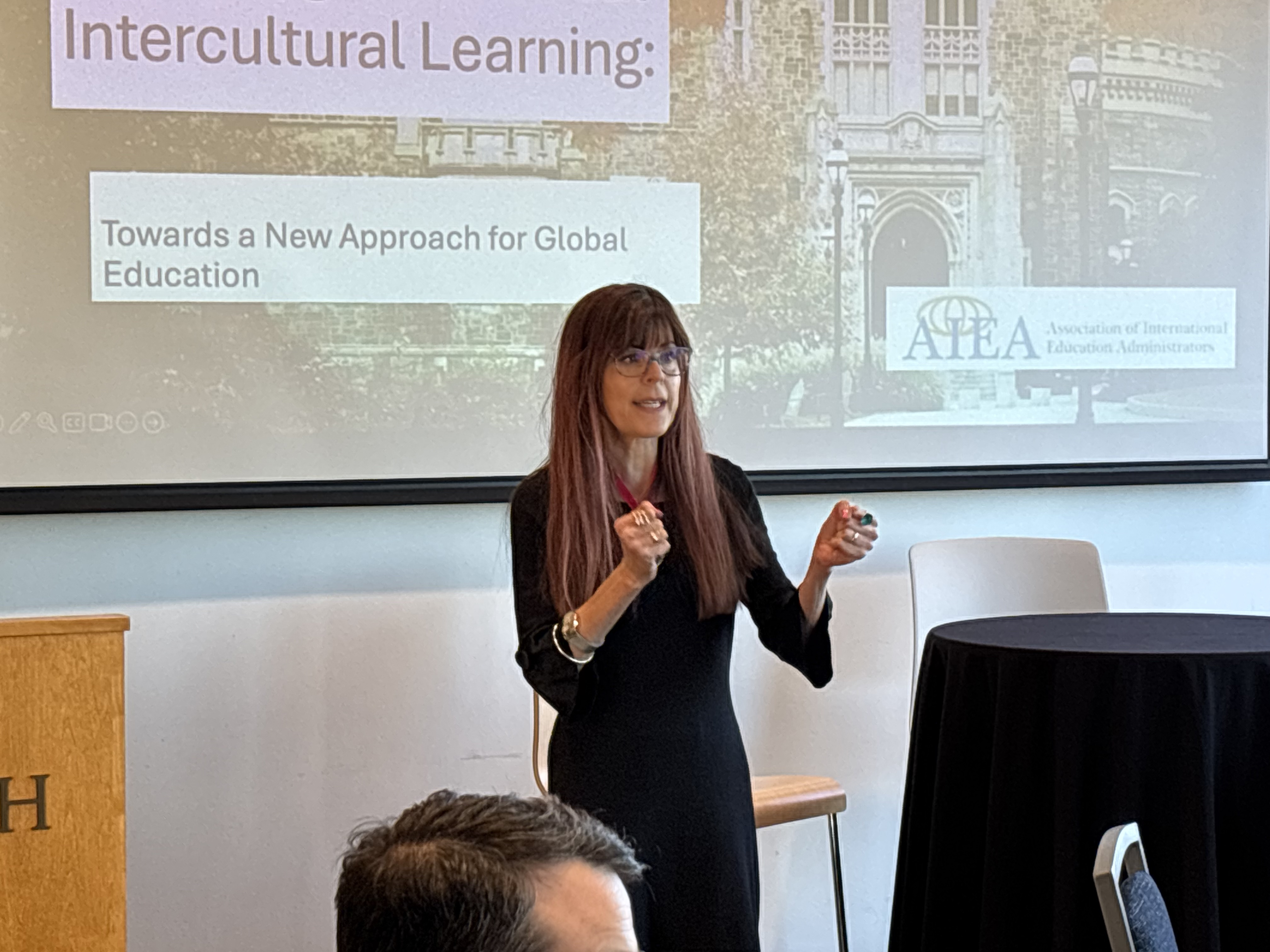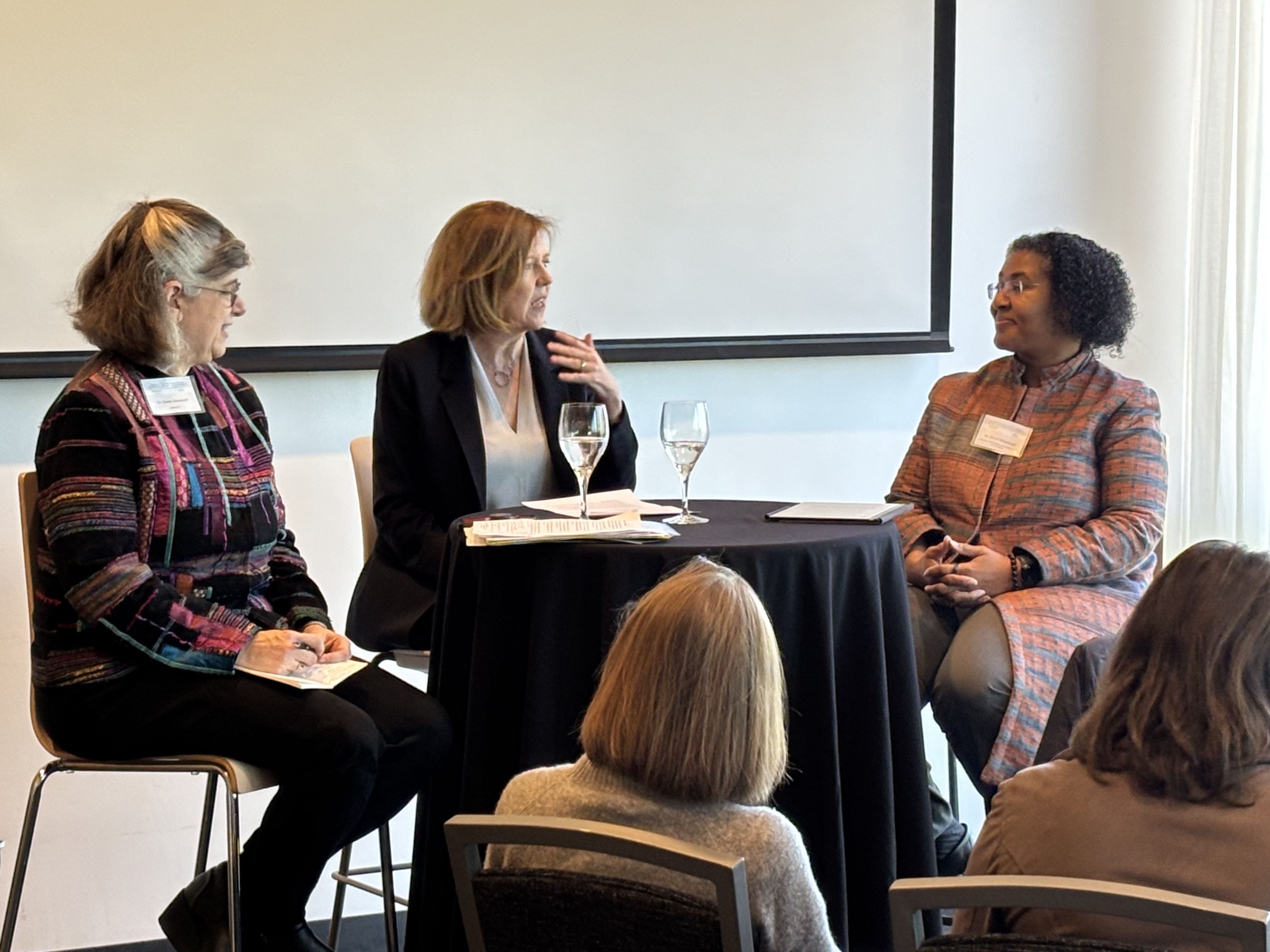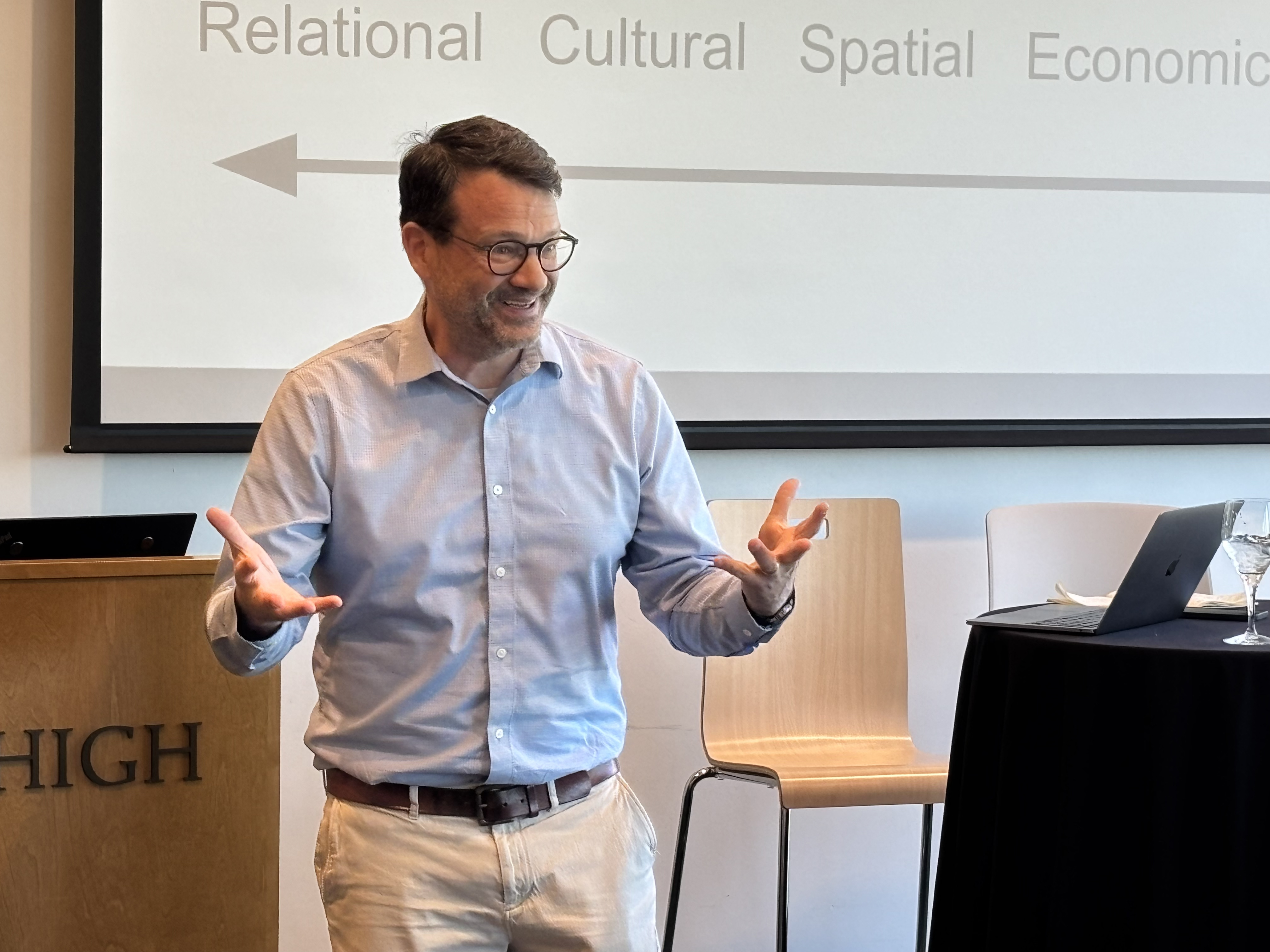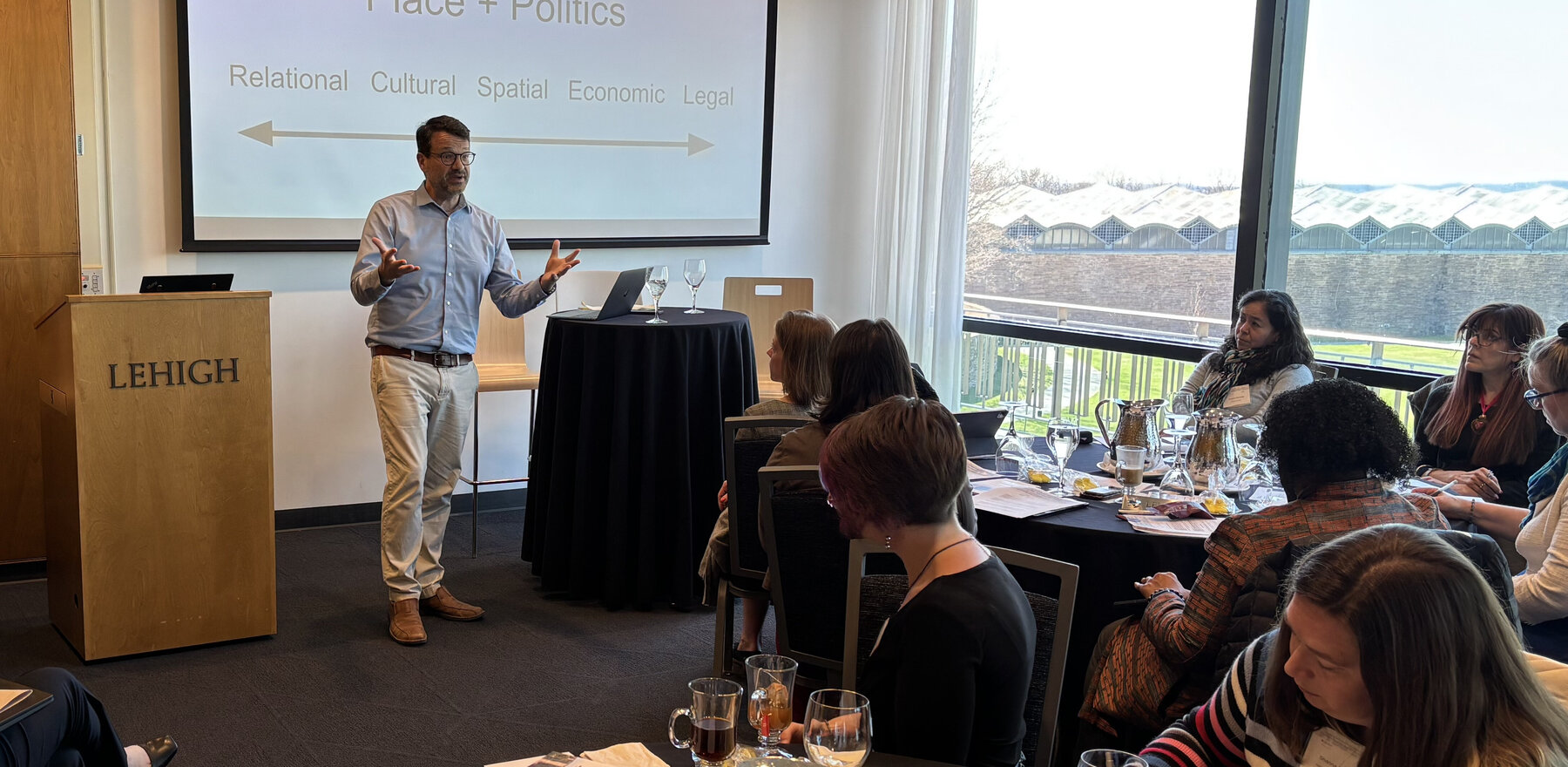Lehigh University hosted a two-day forum exploring the role of coaching in advancing global education and intercultural learning
More than three dozen educators and international education leaders from a variety of institutions gathered at Lehigh University this week for an event focused on the powerful role of coaching in advancing intercultural learning and global education.

Sponsored by the Association of International Education Administrators (AIEA), the event was called “Coaching and Critical Intercultural Learning: Towards a New Approach for Global Education.” Held on April 8 and 9 at Lehigh’s Mountaintop Campus, it was part of the distinguished AIEA Thematic Forums series.
Angelina Rodríguez, Assistant Vice Provost for Global Learning at Lehigh, shared her pedagogical coaching model called Self-Other-World Learning (SOWL, pronounced “soul”), which integrates intercultural understanding with transformational learning. The approach centers on how individuals encounter differences and how deep, personal shifts can catalyze meaningful global engagement.
Rodríguez emphasized that coaching is especially relevant in today's context of widespread systemic breakdown, rising anxiety, and burnout. Coaching, she said, offers students a way to build self-awareness, develop empathy, and engage with others non-judgmentally—skills essential for navigating an increasingly complex and polarized world.
“This is one way we can help this next generation in particular grapple with the paradoxical desire to belong to the same world that they so fervently wish to change,” Rodríguez said. “What new hope and possibilities are emerging for our work in global education, and how do we cultivate the conditions for such a transformative shift?”
Rethinking Global and Intercultural Learning

Among the event’s speakers were Darla Deardorff, UNESCO Chair of Intercultural Competences at Stellenbosch University in South Africa, and Dawn Whitehead, President of the Office of Global Citizenship for Campus, Community & Careers at the American Association of Colleges and Universities (AAC&U).
Deardorff and Whitehead participated in a panel discussion about critical intercultural learning processes and outcomes. The conversation was facilitated by Cheryl Matherly, Vice President and Vice Provost for International Affairs at Lehigh’s Office of International Affairs (OIA).
Whitehead defined global learning as a critical analysis of and engagement with complex, interdependent global systems, emphasizing their impact on human lives and sustainability. She argued that global learning is not confined to study-abroad programs but is a multidisciplinary process accessible to all students.
Deardorff discussed the difference between global learning and intercultural learning, explaining that the latter emphasizes human relationships and understanding across cultural differences. The goal is to foster deeper human connections and build a more peaceful world.
Whitehead further contended that higher education should harness knowledge to improve society, ensuring that academic endeavors directly benefit local and global communities. By embracing different perspectives, communities can engage in meaningful dialogue and work collectively to strengthen democratic processes.
“I think it's clear from the way we bring global learning and intercultural learning that it's critical right now,” she said. “It's what we need right now, both within our country and to engage in the rest of the world."
Belonging, Leadership, and Global Contexts

Lesley Robinson gave a presentation on coaching and leadership in a global context. She is co-founder and Director of Education of Ayana, a foundation dedicated to uplifting women founders worldwide by providing them with education, community, and enhanced access to funding.
“I’m passionate about the intersection of cultivating an entrepreneurial mindset alongside a global mindset—both require adaptability, curiosity, comfort with risk and uncertainty, and a commitment to solving complex global challenges,” Robinson said.
Christopher Glass, Professor of the Practice in the Department of Educational Leadership and Higher Education at Boston College, led a discussion about the complexity of "belonging"—legally, socially, and emotionally—for international students. He distinguished between "belonging" and "fitting in," arguing that the former involves meaningful inclusion and participation, while the latter often involves conforming to pre-existing systems, which may be exclusionary or even oppressive.
He also traced the evolution of internationalization in higher education, noting its shift from Cold War-era ideological alliances to a new phase of “technological securitization,” in which national security and data surveillance influence who is allowed to study in the United States.
Glass warned that rising visa denials and increased government scrutiny are restricting global academic mobility and redefining inclusion. He urged educational leaders to recognize their own power and complicity in maintaining exclusionary structures.
“Real change requires adaptive leadership and honest—sometimes uncomfortable—conversations,” he said. “We also need to think about belonging as not something that we're offering to our students. It's about letting students create living traditions. Your students want to shape the future of your campus.”
Additionally, Rodríguez hosted a fireside chat with Miriam Meima about coaching, cross-cultural perspectives, and global context. Meima is the founder and Executive Coach of Every Day Leader, and has worked as a coach and facilitator for more than 20 years.
